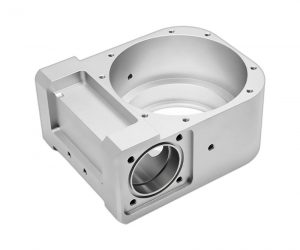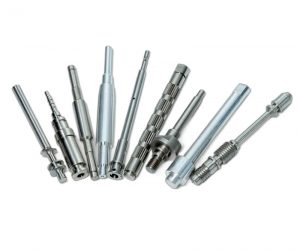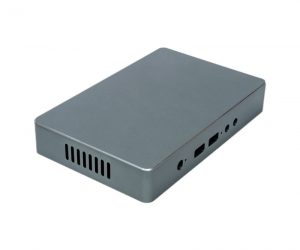The unassuming plastic pellet may be small in size, but its impact on the world of injection molding is truly colossal. This comprehensive guide has illuminated the captivating. story of these silent heroes, equipping readers with the knowledge and insights necessary to harness the power of plastic pellets in their own manufacturing endeavors. As the injection molding industry continues to evolve, the role of these versatile building blocks will only grow, cementing their place as the indispensable foundations of our plastic-powered world.
Introduction: The Silent Heroes of Injection Molding—Plastic Pellets
In the captivating world of modern manufacturing, where cutting-edge technologies and innovative materials reign supreme, there lies a humble hero that has quietly shaped the landscape of countless products we use every day: the unassuming plastic pellet. These small, yet mighty components are the silent architects of the injection molding process, transforming raw polymers into the precise and intricate plastic items that have become essential to our daily lives.
"Injection Molding Unleashed: The Power of Plastic Pellets" invites you to dive deep into the captivating realm of these versatile building blocks, exploring their composition, properties, and pivotal role in the injection molding industry. Whether you're a seasoned professional, a curious student, or an enthusiast of materials science and manufacturing, this comprehensive guide will equip you with a profound understanding of the unsung heroes that form the foundation of countless products, from simple household items to complex industrial components.
Through a meticulously crafted journey, we will uncover the secrets behind the production and transformation of plastic pellets, delving into the science, quality standards, and cutting-edge innovations that are redefining the future of injection molding. Prepare to be amazed by the sheer power of these small yet mighty components as we navigate the intricate processes and diverse applications that have made plastic pellets an indispensable part of our modern world.
Chapter 1: Born to Shape: The Making of Plastic Pellets
Understanding the Composition and Manufacture of Plastic Pellets
The journey of plastic pellets begins with the careful selection and processing of raw polymer materials. This section explores the fundamental steps involved in the production of these small, yet essential components, from the initial polymer synthesis to the extrusion and pelletization processes. By understanding the underlying principles and techniques, readers will gain a deeper appreciation for the meticulous craftsmanship that goes into creating the building blocks of injection molding.
Varieties of Plastic Pellets and Their Characteristics
The world of plastic pellets is far from homogeneous, with a diverse array of polymer types, additives, and formulations available to meet the specific needs of various industries and applications. This chapter delves into the different varieties of plastic pellets, examining their unique compositions, properties, and suitability for injection molding. From commodity plastics like polypropylene and polyethylene to high-performance engineering materials such as polycarbonate and nylon, readers will learn how to navigate the vast landscape of plastic pellet options and make informed choices for their own manufacturing endeavors.
Chapter 2: The Science Behind the Shaping: Properties of Plastic Pellets
Deep Dive Into the Physical and Chemical Properties of Plastic Pellets
At the heart of plastic pellets' transformative power lies their intricate physical and chemical properties. This chapter conducts a comprehensive exploration of these essential characteristics, from molecular structure and thermal behavior to rheological and mechanical properties. Understanding these aspects helps molders predict the performance and behavior of plastic pellets within the injection molding process.
How These Properties Affect the Injection Molding Process
The properties of plastic pellets directly influence the success of the injection molding process. This section explores how factors like melt viscosity, shrinkage, and thermal stability influence crucial aspects of molding, such as fill patterns, part quality, and cycle times. Readers will gain valuable insights into how to optimize the selection and use of plastic pellets to achieve the desired outcomes in their injection molding applications.
Chapter 3: Precision Before Production: Quality Standards for Pellets
Criteria for Selecting the Right Plastic Pellets for Injection Molding
Ensuring the consistent quality and reliability of plastic pellets is paramount in the injection molding industry. This chapter delves into the essential criteria that molders must consider when selecting the appropriate pellets for their specific applications, covering factors such as material composition, dimensional accuracy, and contaminant levels. By mastering these selection guidelines, readers will be equipped to make informed decisions that minimize defects and maximize production efficiency.
Ensuring Consistency and Reliability in Pellet Quality
Maintaining the integrity of plastic pellets throughout the entire supply chain is a critical challenge for the injection molding industry. This section explores the rigorous quality control measures and testing protocols employed to uphold the consistency and reliability of these essential components, from incoming material inspections to in-process monitoring and final product validation. Readers will gain insights into the best practices that enable the production of high-quality, defect-free plastic parts.
Chapter 4: Molding Magic: The Transformation of Pellets to Products
Step-by-Step Journey of Plastic Pellets Through the Injection Molding Machine
The transformation of plastic pellets into finished products is a captivating process that lies at the heart of injection molding. This chapter guides readers through the step-by-step progression of pellets as they enter the injection molding machine, navigating the intricate processes of melting, injection, packing, and cooling. By understanding the precise choreography of this technology, readers will develop a deeper appreciation for the engineering prowess that brings plastic pellets to life.
Techniques and Troubleshooting in the Injection Molding Process
Despite the precision of the injection molding process, challenges can still arise during the transformation of plastic pellets into final parts. This section delves into the various techniques and troubleshooting strategies employed by experienced molders to address common issues, such as warpage, surface defects, and dimensional inconsistencies. Readers will gain the knowledge and problem-solving skills necessary to overcome obstacles and maintain a high level of quality and efficiency in their own injection molding operations.
Chapter 5: Application Alley: Diverse Uses of Plastic Pellets
Surveying the Range of Products Made Possible by Plastic Pellets
The versatility of plastic pellets is truly astounding, as they serve as the foundation for a vast array of products that have become integral to our daily lives. This chapter takes readers on a captivating journey through the diverse applications of injection-molded plastic, from household items and consumer electronics to automotive components and medical devices. By exploring this wide-ranging landscape, readers will be inspired by the transformative power of these small yet mighty building blocks.
Case Studies: Success Stories from Different Industries
To bring the diverse applications of plastic pellets to life, this section features a series of illuminating case studies that showcase real-world examples of successful injection molding projects. These in-depth narratives will not only inspire readers but also provide valuable insights into the innovative ways in which plastic pellets are being leveraged to solve complex challenges and deliver cutting-edge solutions across various industries.
Chapter 6: Innovation and Advancements: The Future of Plastic Pellets
Emerging Technologies and Trends in Plastic Pellet Production and Use
The world of plastic pellets is constantly evolving, with new technologies and innovative approaches emerging to push the boundaries of what's possible. This chapter examines the latest developments in pellet manufacturing, including advanced material formulations, enhanced processing techniques, and intelligent monitoring systems. Readers will gain a glimpse into the exciting future of plastic pellets and the implications for the injection molding industry as a whole.
The Sustainable Development of Plastic Pellets for Eco-Friendly Manufacturing
As the global community becomes increasingly conscious of environmental sustainability, the injection molding industry is rising to the challenge by exploring more eco-friendly solutions for plastic pellet production and use. This section delves into the groundbreaking initiatives and innovative materials that are redefining the future of plastic pellets, from the use of renewable and recycled feedstocks to the implementation of closed-loop waste management systems. Readers will be inspired by the steps being taken to drive sustainable progress in the world of injection molding.
Chapter 7: Stewardship and Sustainability: Responsible Use of Plastic Pellets
Best Practices for Environmentally Conscious Use of Plastic Pellets
The responsible use of plastic pellets is a crucial aspect of sustainable injection molding. This chapter outlines the best practices and guidelines that molders can follow to minimize the environmental impact of their operations, from proper storage and handling to effective recycling and disposal methods. By adopting these stewardship principles, readers will be empowered to contribute to the broader shift towards more environmentally conscious manufacturing.
Challenges and Opportunities in Recycling Post-Industrial Pellet Waste
As the demand for sustainable solutions continues to grow, the recycling of post-industrial plastic pellet waste has become an increasingly important focus area. This section examines the unique challenges and promising opportunities presented by this emerging field, exploring innovative technologies, policy initiatives, and collaborative efforts that are paving the way for a more circular economy in the injection molding industry.
Conclusion: The Ongoing Evolution of Plastic Pellets in Injection Molding
As we reach the culmination of this captivating exploration, it becomes clear that plastic pellets are the unsung heroes behind the countless products that have become integral to our modern world. These small, yet mighty components have quietly transformed the injection molding landscape, serving as the building blocks for a vast array of items that we rely on every day, from everyday household goods to cutting-edge industrial applications.
The journey of plastic pellets is a testament to the power of innovation, engineering, and materials science. Through the continuous refinement of their composition, properties, and manufacturing processes, these small but essential components have enabled the injection molding industry to push the boundaries of what's possible, delivering ever-more precise, durable, and efficient plastic products.
Looking ahead, the future of plastic pellets holds even more exciting developments, as the industry embraces sustainable practices, leverages emerging technologies, and tackles new challenges. As the world becomes increasingly conscious of environmental responsibility, the role of plastic pellets will evolve, with a focus on eco-friendly materials, closed-loop waste management, and innovative recycling solutions.
FAQs
Q: What is the process behind the production of plastic pellets?
A: Plastic pellets are manufactured through a multi-step process that involves the synthesis of raw polymer materials, extrusion, and pelletization. This chapter explores the fundamental techniques and technologies employed in the making of these essential components.
Q: What are the different types of plastic pellets available, and how do their characteristics vary?
A: The world of plastic pellets is diverse, with a wide range of polymer types, additives, and formulations available to meet the specific needs of various industries and applications. This chapter delves into the unique properties and suitability of different plastic pellet varieties for injection molding.
Q: What are the key quality criteria and standards that must be considered when selecting plastic pellets for injection molding?
A: Ensuring the consistent quality and reliability of plastic pellets is crucial in the injection molding industry. This chapter explores the essential selection criteria, such as material composition, dimensional accuracy, and contaminant levels, as well as the rigorous quality control measures employed to uphold pellet integrity.
Q: How do the properties of plastic pellets influence the injection molding process and the final product quality?
A: The physical and chemical properties of plastic pellets have a direct impact on crucial aspects of the injection molding process, including melt viscosity, shrinkage, and thermal stability. This chapter examines how these factors affect fill patterns, part quality, and cycle times.
Q: What are some of the diverse applications and success stories showcasing the transformative power of plastic pellets in injection molding?
A: Plastic pellets serve as the foundation for a vast array of products across various industries, from household items and consumer electronics to automotive components and medical devices. This chapter features illuminating case studies that highlight the innovative ways in which plastic pellets are being leveraged to solve complex challenges.
Q: What are the emerging technologies and trends shaping the future of plastic pellets in the context of sustainable manufacturing?
A: The world of plastic pellets is constantly evolving, with new developments in material formulations, processing techniques, and intelligent monitoring systems. This chapter also explores the groundbreaking initiatives aimed at driving more eco-friendly solutions for plastic pellet production and use.



